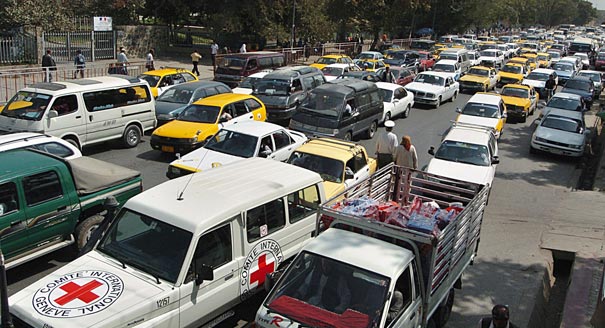{
"authors": [
"Shin-pei Tsay",
"David Burwell",
"Roy Kienitz",
"Philip Ryneveld",
"Beth Osborne",
"Phillipe Crist",
"Michael Replogle",
"Joshua Schank",
"Kumar Lohia",
"Annie Weinstock",
"Javier Bejos",
"Renato Boareto",
"Manfred Breithaupt",
"Amado Croda",
"Claudio Frederico",
"Domingos de Aguiar Neto",
"Walter Hook",
"Colin Hughes",
"Robert Puentes",
"Felipe Targa",
"Eduardo Vasconcellos"
],
"type": "event",
"centerAffiliationAll": "dc",
"centers": [
"Carnegie Endowment for International Peace"
],
"collections": [],
"englishNewsletterAll": "",
"nonEnglishNewsletterAll": "",
"primaryCenter": "Carnegie Endowment for International Peace",
"programAffiliation": "SCP",
"programs": [
"Sustainability, Climate, and Geopolitics"
],
"projects": [],
"regions": [
"North America"
],
"topics": [
"Climate Change"
]
}
National Urban Transport Policy Symposium
Thu, October 11th, 2012
Washington, D.C.
IMGXYZ3981IMGZYXThe National Urban Transport Policy Symposium brought together transportation experts, officials, and politicians from around the world to examine shared challenges, identify shared opportunities, and discuss potential responses through replicable models and specific policy mechanisms in national urban transportation policy.
Discussion Highlights
- Current Challenges in National Urban Transport Policy: Although there are large variations in the capacity, size, and support associated with each city and country, there is a set of shared challenges in creating a national vision of and policy for urban transportation, participants agreed. Challenges include:
- Integrating land use and transportation planning
- Addressing environmental concerns such as emission reductions
- Reaching social benefits, such as ensuring equity and public health
- Coordinating among different levels of government
- Affirming local authority
- Improving project evaluation, construction, and implementation
- Understanding private-public partnerships
- Funding and Finance: Although there are funding opportunities for projects that could enhance growth and offer potential economic returns, there is a lack of local institutional capacity to take advantage of them and poor conceptualization of innovative projects, participants added. Some participants suggested that the financial viability of initial capital investment and ongoing costs may be helped by partnerships structured at the city level. These include co-funding, fund recurrent costs, property taxes, and sharing risks of revenue sources.
- Project Selection and Development: Rather than looking for best practices, it is perhaps better to focus on the transferability of projects that allow access to labor markets, innovation, people, and opportunity, suggested a participant. The participants agreed that there is a need durable, diverse, and predictable funding streams for innovative metropolitan transit authorities with institutional capacity. These authorities should fund projects through a cost-benefit appraisal-based process or a plan-based process with strong planning guidance. Ultimately, both processes should include a strong litmus test to uphold accountability.
- Project Implementation and Evaluation: Transportation projects should be seen as a network that can help overcome financial constraints and a lack of political will, stated a participant. Funding is more successful when project selection is based on competitive outcome and goals rather than a formula.
- Facilitating Local Progress and Building Capacity: Participants discussed the situation in Mexico as a case study. Local government cannot deliver on implementation due to a lack of planning capacity in the country, they said. In order to guide local authority, the national government must adopt a long-term vision and decide upon an evaluation process, which the state can then execute. Students and universities can add capacity by evaluating and developing urban transportation projects.
- The Future of Sustainable Urban Transport Policy: All countries represented at the symposium must take external factors into account when dealing with transportation policy, participants agreed. Cities around the world are dealing with high urbanization, or reurbanization, rates that place increasing demands on public transit and “active transport.” Climate change is also altering the dynamic for public transit, not only in terms of air quality and GHG emissions but also adaptation plans for coastal cities. The international economic crisis and national economic recessions are forcing governments to fund less, but fund more intelligently with more accountability in terms of safety, equity, air quality, and cost-effectiveness. Motorization is also an external trend that will continue to influence urban transport policy, particularly in developing countries where there has been a quicker shift to two-wheel motorization.
- Looking to the Future: Participant described several main points for the future of sustainable transport:
- Evaluating Effectiveness: There is a need for baseline data, monitoring performance, and high quality reporting in order to evaluate the effectiveness of projects and increase accountability
- Build Capacity: There is a need to build capacity through institutional structures that include multi-sector and multi-level leadership coalitions to ensure policy alignment across sectors and governments.
- Funding Allocation: Funding and authority should be reallocated to the level of government which is incurring the transportation problem.
- Incentives and Pricing: There is a need for smarter incentives and pricing systems that align with accessibility, equity of access, and minimizing adverse environmental consequences.
- Return on Investment: National governments need to set performance/outcome-based goals to ensure that there is a return on their investments. Local governments should choose the most effective means to achieve those goals in ways that enhance local ownership and context-appropriate planning.
Carnegie does not take institutional positions on public policy issues; the views represented herein are those of the author(s) and do not necessarily reflect the views of Carnegie, its staff, or its trustees.
Event Speakers
Shin-pei Tsay was a nonresident associate in the Energy and Climate Program at the Carnegie Endowment for International Peace.
David Burwell
Former Nonresident Senior Fellow, Energy and Climate Program
Burwell focused on the intersection between energy, transportation, and climate issues, as well as policies and practice reforms to reduce global dependence on fossil fuels.
Roy Kienitz
Philip Ryneveld
Beth Osborne
Phillipe Crist
Michael Replogle
Joshua Schank
Kumar Lohia
Annie Weinstock
Javier Bejos
Renato Boareto
Manfred Breithaupt
Amado Croda
Claudio Frederico
Domingos de Aguiar Neto
Walter Hook
Colin Hughes
Robert Puentes
Felipe Targa
Eduardo Vasconcellos
